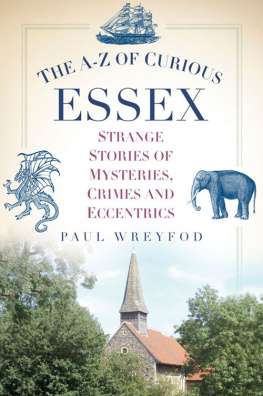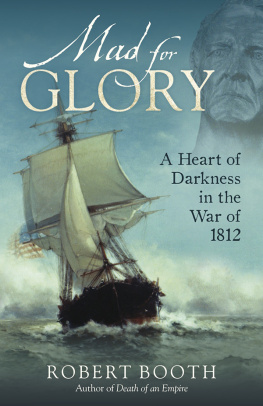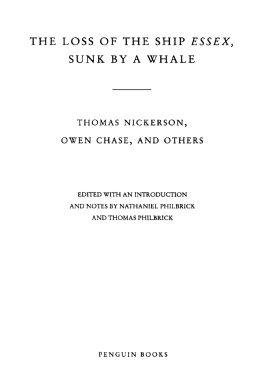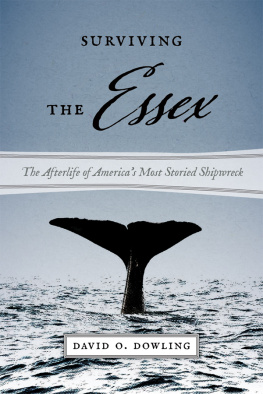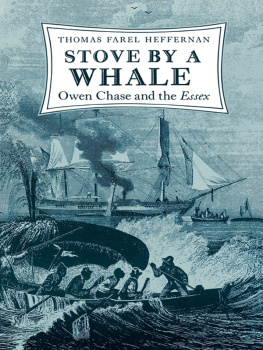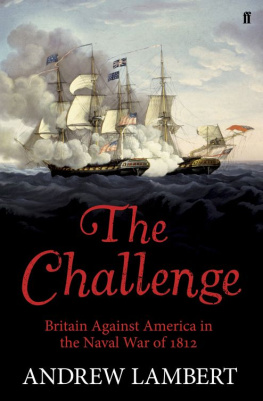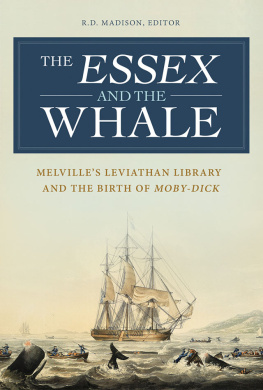

GEORGE C. DAUGHAN
BASIC
BOOKS
A MEMBER OF THE PERSEUS BOOKS GROUP
NEW YORK
Copyright 2013 by George C. Daughan
Published by Basic Books, A Member of the Perseus Books Group
All rights reserved. No part of this book may be reproduced in any manner whatsoever without written permission except in the case of brief quotations embodied in critical articles and reviews. For information, address Basic Books, 250 West 57th Street, New York, NY 10107.
Books published by Basic Books are available at special discounts for bulk purchases in the United States by corporations, institutions, and other organizations. For more information, please contact the Special Markets Department at the Perseus Books Group, 2300 Chestnut Street, Suite 200, Philadelphia, PA 19103, or call (800) 810-4145, ext. 5000, or e-mail special.markets@perseusbooks.com.
Book design by Linda Mark
Text set in 11pt JansonText Pro
Library of Congress Cataloging-in-Publication Data
Daughan, George C.
The shining sea : David Porter and the epic voyage of the U.S.S. Essex during the War of 1812 / George C. Daughan.
pages cm
Includes bibliographical references and index.
ISBN 978-0-465-06994-1 (e-book) 1. Porter, David, 1780-1843. 2. Essex (Frigate) 3. United StatesHistoryWar of 1812Naval operations, American. 4. United States. NavyHistoryWar of 1812. 5. United States. NavyOfficersBiography. I. Title.
E353.1.P7D38 2013
973.5'2573dc23
2013018564
10 9 8 7 6 5 4 3 2 1
For Kay, Mary, Mark, Alex, and Tyler
The love of fame for the founders was the ruling passion of the noblest of minds.
ALEXANDER HAMILTON
CONTENTS


ALTHOUGH ONE OF AMERICAS LESSER-KNOWN CONFLICTS, THE War of 1812 was one of her most important. Beginning on June 18, 1812, the fighting continued unabated for a grueling thirty-two months before ending on February 17, 1815. The struggle spread over a wide area, including all of the United States east of the Mississippi, many parts of Canada, the Great Lakes, and Lake Champlain, as well as most of the worlds oceans. Despite being underappreciated, the war had a profound effect on the nations future. It brought about a rapprochement between Britain and America that changed world history. The enmity that had characterized their relationship since the War of Independence ended. In the final year of the war, the United States demonstrated a military capacity that secured Britains respect and caused her to fundamentally alter her North American policy. By winning battles at Fort Erie in the Niagara area, at Plattsburgh on Lake Champlain, at Baltimore, and at New Orleans, the United States forced London to confront a new international realitya strong republic on the other side of the Atlantic.
Led by their prescient foreign minister, Lord Castlereagh, Britain dealt with this new phenomenon by changing her policy toward America from confrontation to accommodation. Castlereagh recognized, before any other British statesman, the critical importance of maintaining friendship with the United States. Instead of treating her as a rival and a potential enemy, where every dispute might become lethal, he sought ways to build amicable relations. He feared that if Britain and America remained enemies, they could be fighting over one issue or another for the next hundred years. Prime Minister Robert Jenkinson (Lord Liverpool) and the rest of the cabinet followed his lead. The two great English-speaking countries never fought again. The serious disagreements they had during the nineteenth centuryover boundaries with Canada, the westward expansion of the United States, Texas, the Mexican War, the American Civil War, and a fiercely competitive maritime rivalrywere all resolved peacefully.
The new diplomatic reality spawned by the War of 1812 eventually made possible the remarkable collaboration, indeed partnership, of the two countries during the twentieth and twenty-first centuries, a partnership that was to be of incalculable benefit to themselves and to the world.
P erhaps as important as beginning a new era in relations with Britain, the war strengthened the countrys democratic impulses while solidifying respect for the Constitution. The franchise was extended. Property qualifications were lowered so that all those who fought the war could vote. And just as important, President James Madison led the fight without becoming a dictator, which many in Europe thought he would be forced to do. Throughout the struggle, he scrupulously observed the constitutional limits placed on the presidency and gave the country confidence that it could manage its most challenging problems without altering or discarding its form of government.
The heroic efforts of the American navy were critical in winning the war and the peace. Victory in the key battles at Plattsburgh, Baltimore, and New Orleans would have been impossible without the navy. Its true that the Battle of New Orleans was fought (on January 8, 1815) after the peace treaty had been signed at Ghent, on December 24, 1814. But the lopsided outcome at New Orleans showed the potential of American arms and had a major impact on Castlereagh. The navys part in the battle is not well known, but the hero of the Battle of New Orleans, General Andrew Jackson himself, was the first to acknowledge that the tiny naval contingent played a key part in securing a tremendous victory.
The war revealed hidden strengths that made the small American fleet far more potent than its meager size would indicate. Several factors accounted for its surprising success. To begin with, the ships were as good as, and often better, than their British counterparts, and so were their crews. American men-of-war were manned by volunteers who were required to sign on for only two years, unlike British tars who were forced to serve until the war was over. American seamen exhibited an inspiring degree of patriotism, willingly enduring unbelievably harsh conditions. British seamen were patriotic, too, but their unusually high rate of desertion demonstrated, as nothing else could, how brutal conditions were aboard their ships. American desertions, by comparison, were minuscule. There were no impressed men aboard American men-of-war as there were in the Royal Navy. And the treatment of the crews was far better in the American fleet. Pay, health, food, and discipline were all superior.
Perhaps the most important factor accounting for the success of the American navy was its superb officer corps. Unlike the army, which had not fought (except against small numbers of poorly armed Indians) since the Revolution, the navys leaders were experienced fighters, having begun their baptism of fire during the Quasi-War with France from 1798 to 1800. Their skills were further honed during the war with Tripoli, which lasted from 1801 until 1805.
A strong naval tradition, dating back to the War of Independence, added to the navys strength. Heroes like John Paul Jones, John Barry, Silas Talbot, and many, many others inspired the young officers. So, too, did their fathers and uncles who fought with distinction in the Continental and state navies during the Revolution. Lesser-known heroes, like Christopher Perry, Stephen Decatur Sr., George Farragut, and David Porter Sr. inspired their sons to follow in their footsteps. The navys young stars also benefited from gifted mentors like Thomas Truxtun and Silas Talbot during the Quasi-War and Edward Preble during the war with Tripoli.
Next page

